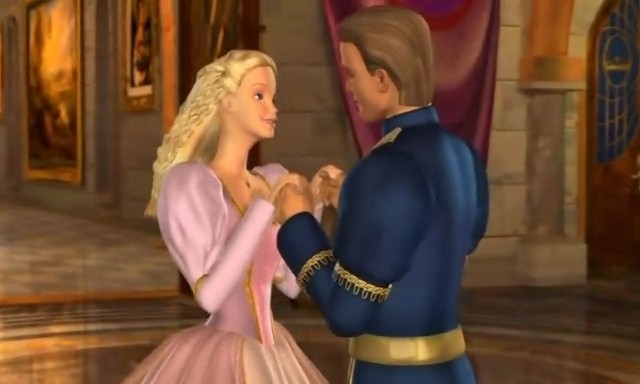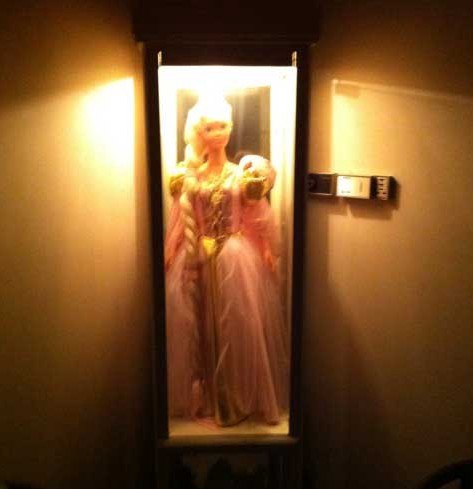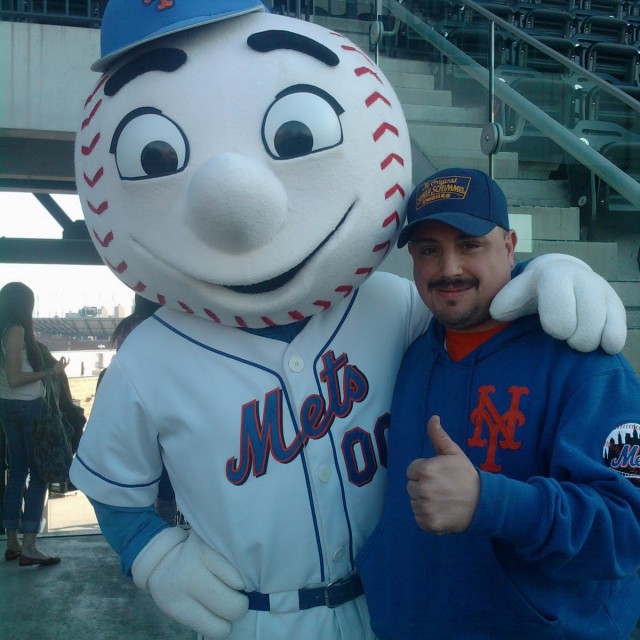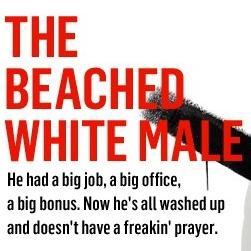Mailman Does Very Bad Thing
I cannot think of a more succinct statement about the state of the nation than this one: “He started pulling his pants down and started defecating and at that point I grabbed my camera and started to take pictures.” [Via]
'Los Angeles Review of Books' Creates Jobs

The Los Angeles Review of Books has come into existence, with an opening salvo from Awl pal Ben Ehrenreich, with a very recent history of the death of the book, a proposition regarding which you can imagine both author and publication are “con.” It’s a bit more philosophical than might readily be embraced elsewhere on the Internet, addressing as it does “bibilionecrophilia: the retreat of the print-faithful into a sort of autistic fetishization of the book-as-object — as if Jeff Bezos could be convinced to lay e-profits aside by recalling for a moment the soft, woody aroma of a yellow-paged Grove Press paperback; as if there were nothing more to books than paper, ink, and glue” instead of, you know, the ways that publishing is changing right now and how people can make money off of it instead of just throwing their books off a cliff, but we’ll take it. Also it has a masthead of 16 people! There appear to be two poetry editors! Anyway, bookmark it, follow it on Tumblr, print it out, etc.
When Barbie Came To Live With Us
When Barbie Came To Live With Us
by Rakesh Satyal

As happens with many gay men, my childhood was rendered infinitely brighter and more flamboyant by the presence of Barbie. But the biggest Barbie moment of my life centers around not me, but my parents.
As long as I can remember, my mother has had a fascination with Barbie dolls. As an Indian immigrant, she viewed them as flawless examples of Americana. Once, when our young next-door neighbor added an Indian Barbie to her fledgling Barbies of the World Collection, I thought that my mother’s tiny head would pop off at this conflagration of East-meets-West madness. Another time I remarked on her excitement as she was gift-wrapping a Malibu Barbie to give to a family friend’s young daughter. She told me, with a seriousness that I had seen from her only on the day that Rajiv Gandhi passed away, “I vant to keep it for myself.”
On the other hand, my father, too masculine and utilitarian-minded for a preoccupation with toys, has always been the world’s most direct gift giver, especially when it comes to my mother. He rather infamously gave her a pot to cook in for their anniversary — three years in a row. That my father was a carnivore and my mother a strict vegetarian Brahmin seemed to make this transaction all the more strained. So, the summer after my junior year of high school, as my parents’ anniversary loomed large, I quite naturally expected pot #4 to make its way onto our stove.
Back then, I used to perform in a regional youth theater program during the summers. Rehearsal was held an hour from our home, and every day at 5 p.m., I would wait in the foyer for my friends to pick me up. We would drive an hour to the theater, rehearse for four hours, then come back very late, usually after midnight. One August afternoon, as I was waiting impatiently for my friends to arrive, my father appeared at the top of the stairs and called to me excitedly, “Rakesh! Rakesh, come up here!”
“Dad, I have to leave soon,” I said.
“Just come up here von second!” I had rarely seen him so animated.
I climbed the stairs to the master bedroom to see my father leaning on a five-foot-tall hot pink Mattel box. I mean, at the age of six — OK, fine, twelve — I might have been elated to behold this fluorescent miasma, what with the half-dozen Barbies hiding under my bed at that time. But as a man of a certain teen-age, I was not prepared for it. This was the equivalent of a heterosexual teenager who had played with Hot Wheels in his youth entering to find a Porsche where a four-poster bed had once stood.
Contained in this gargantuan fluorescent rectangle was what was known as a My Size Barbie: Rapunzel Edition. The conceit here was that little girls (or truly “adventurous” little boys) could play with Barbie, then denude her and sport her gold lamé-and-pink chiffon gown themselves, as well as pluck off her long, platinum-blonde braid and wear it as a weave, regardless of their own hair color — and presumably undisturbed that they were leaving Barbie bald and naked on the ground.
“Vell, isn’t she something!” my dad said, beaming almost as brightly as the lamé.
Clearly, I was speechless.
This did not deter my father in the least. “So,” he said, “you’re artistic…” (Translation: You’re gay and I don’t know it yet.) “Fix ‘er up!”
This is how, at almost 17, I found myself froofing My Size Barbie’s clothing while my father watched, pride shooting out of his face. I attached the braid — I wanted to bounce it in the air like a newly anointed Oscar winner and say, “Oh! It’s heavy!” — and as I slid my hand through Barbie’s skirts to give them extra volume, I wondered if I could secretly melt Barbie, then refashion her fleshy goo into a thousand normal-sized dolls that I could subsequently distribute to the children of Calcutta.
As you might imagine, the presentation of the Barbie to my mother was met with incredulity and confusion, not least because the doll wasn’t far from my mother’s height.
My mother opened her eyes — which she had been instructed to keep closed as my father positioned Barbie just-so in our family room, an alien princess intergalactically transported to our Persian rug — and her face bore such an unreadable expression that my two brothers and I had to bite our lips in anticipation of her reaction. My dad gestured broadly at the doll like one of Barker’s Beauties on The Price Is Right.
“Oh! It’s… it’s… great!” our mother chimed, and for a long, long moment, I could not tell what percentage of that exclamation was genuine and what percentage pejorative. But then her expression shifted, and she soon wore a look of childlike fascination, the same look I had seen when the Indian Barbie of the World had crossed her path years back. She seemed truly impressed by Barbie, struck by the sort of punch-drunk appreciation of grandeur that pretty, shiny things have a tendency to engender in people.
No sooner had Barbie entered our lives than she was disappearing. Telling my mother he was putting the doll away “for safekeeping,” my father tucked Barbie under his arm and marched away, like some Indian reinvention of the lingerie leg saga in A Christmas Story. I half-expected my mother to raise a hand in farewell.
Somehow, in the whirlwind of rehearsing for my show (it was Peter Pan, and I was playing Captain Hook, which, FYI, is the gayest character ever), I was able to forget about Barbie for a few days. However, one night, after a very long rehearsal, I came home at almost one in the morning to a house darkened with sleep and nighttime quiet. I let myself in the side door and was puzzled to see a nightlight glowing in our parlor. Who, I thought, was staying with us? My parents hadn’t mentioned any visitors. I tiptoed to the other end of the house and peered around the corner.
I screamed.

Unwilling to let Barbie go through life without appropriate fanfare and tribute, my father had bought a six-foot-tall, fitted curio cabinet to house Her Long-Tressed Majesty. Barbie was now mounted on a stand, a light shining down and half-illuminating her painted features so that they resembled those of a prettier, taller version of the Bride of Chucky, Barbie had never looked more terrifying.
Barbie has remained in this position for almost 15 years. She is undoubtedly the most prominent object — no, presence — in our house, and she is one of the first things that any new guest inspects. There she stands: a Satyal-household matriarch and a steadfast, ostentatious but heartfelt metaphor of my father’s love for my mother. It only recently occurred to me just how committed my father had to be to bring her to us. Think about it. He had to go to Toys”R”Us — a public place; hoist the Barbie onto a counter — in public; pay upwards of $130 for her — publicly; and then drive her home in his car — through yet more public places. Of course, in terms of journeys, my parents’ immigration from a faraway land beats Barbie’s trip from Toys”R”Us to our house. But just barely.
To this day, whenever I visit my parents, I have a great urge to wait until they leave the house and then refashion Barbie with one of my mom’s old saris and a bindi, just to give her some cultural relevance. But, fitting all too gladly into some gay stereotype, I have never been one to lightly discard lamé and chiffon. Perhaps, somewhere in the world, maybe even in New Delhi, there is a My Size Ken pining away for a lost love, and who am I to change his beloved? Ken may never be reunited with Barbie now that she belongs to us, but thankfully, after almost 40 years of marriage, my parents still have each other.
Rakesh Satyal is the author of the Lambda Award-winning novel Blue Boy.
Still from Barbie as Rapunzel.
These Are Just Some Amazing Pictures Of The Milky Way
Um, this is pretty cool: “This was filmed between 4th and 11th April 2011. I had the pleasure of visiting El Teide. Spain´s highest mountain @(3715m) is one of the best places in the world to photograph the stars and is also the location of Teide Observatories, considered to be one of the world´s best observatories. The goal was to capture the beautiful Milky Way galaxy along with one of the most amazing mountains I know El Teide.” (Learn more here, and see an interview with photographer Terje Sorgjerd here.
Elvis Impersonator Shaken, Rattled, Rolled, Etc.
Sigh: “An Elvis tribute singer with a suspicious mind battered a rival impersonator he wrongly believed was trying to seduce his wife, a court heard.”
The Mets Are Missing Something In 2011: Their Fight Song
I attended three recent games at Citi Field, including the doubleheader last Thursday. And I’m pretty sure I’ve figured out what the Mets are missing this year as they stumble through the early part of their season. It’s not timely hitting or clutch pitching. It has nothing to do with what happens on the basepaths or in the clubhouse. It’s pretty clear that Manager Terry Collins and General Manager Sandy Alderson don’t see it. Or, more importantly, hear it. It’s the song “Meet the Mets.”
“Meet the Mets,” the great battle song of the New York Metropolitans, may be played outside the stadium in instrumental form as Mets’ fans stream into the Jackie Robinson Rotunda, but it no longer is played between one of the early innings in sing-a-long form. Presumably none of the players enter the stadium through the front door. How are they supposed to be inspired by the simple message of the song if they never get to be serenaded to it?
“Meet the Mets,” in my humble opinion, is the greatest of all Baseball Fight Songs. I only know of one other, “Tessie,” and that Red Sox Fight Song is a convoluted mess. The best thing about the lyrics of the Mets song is how well it fits the team. Written before the Mets even existed, it was the perfect introduction to a team that was both new at the time and an extension of National League Baseball in New York City. The Yankees are always the Yankees. You cannot “Meet the Yankees” unless you go to Cooperstown. They’re all there, including all their old batboys and beer salespeople. The Yankees at some point will either have to venture into triple digits or start putting minus signs in front of their uniform numbers, because all of their other jersey numbers will be retired. And then there are the Mets.
The Mets represent the hard-scrabble, tough-luck Anti-Yankees. The Yankees win the World Series twice a year. Once in the offseason, once in the regular season. When the Mets win the World Series, it’s Miraculous. The Run to the 1969 World Series was unthinkable after their early years of putrid helplessness. Born out of the twin abandonments of the New York Giants and the Brooklyn Dodgers, The Mets took their Halloween orange from the Giants and the powder blue from the Dodgers (never mind their recent forays into Giant and Oakland Raider black, we all think black can make us look better than it can. Black may be the new black, but it can only do so much to hide our unattractive pieces. In my case, my gut; in the Mets’ case, former second baseman Kaz Matsui). And out of the roller-coaster history of both those Yankees rivals was born a team that could combine their glory and their folly. Sometimes in the same inning.

I once wrote that I liked watching the Mets because I like feeling sad and alone. I also once wrote that being a Mets’ fan should appear in the next version of the Diagnostic and Statistical Manual of Mental Disorders under BDSM. Growing up a Red Sox fan in the bucolic New England suburbs of Boston, I found that I needed to follow a baseball team that put its fans through ritual torture as part of their 162-game schedule. And when I moved out of the Boston area the day after they won the World Series in 2004 (in a fugue), I naturally gravitated to the Brooklyn roots of my grandfather, a man who left that borough when the Dodgers cruelly jilted him for Los Angeles.
One of the things that first drew me to the team was the song “Meet the Mets.” Beyond being kind of a jolly ditty, it perfectly represented the type of team I was hoping to cheer for. Scrappy, accessible. It’s a song of Welcome. If the voice of the late, great Yankee Stadium announcer Bob Sheppard welcomed you to that park, “Meet the Mets” welcomes you to a Mets’ game perfectly. Because it’s a song about attending Mets’ games. It’s unfortunate that “Meet the Mets” can sometimes sound suspiciously like “Beat the Mets.” Which explains Troy Tulowitzki’s recent N.L. MVP Audition during the games I was at.
“Step right up and greet the Mets.” Come on down to the game, this is your team. The song’s whimsicality belies the reality of the Mets frequently playing losing baseball. “Bring your kiddies, bring your wife / Guaranteed to have the time of your life.” I think it should be changed to “Bring your kiddies, bring a date / Guaranteed to have a time that’s great.” Because not everyone has a wife (or gets to have a wife in New York State. Get with it, people!). And maybe Lady Mets’ fans want to bring their husbands. Or their husbands’ best friend. Or someone they met on craigslist. The Mets shouldn’t judge.
“Because the Mets are really socking the ball / Knocking those homeruns over the wall.” Who says “sock” anymore? It reminds me of Charlie Brown getting his clothes knocked off by a bullet hit right back to the mound. Who wouldn’t want to see that happen in real life? And it could, any night the door to the Mets’ bullpen opens and cannot be shut. Like Pandora’s Box.
The second verse is maybe even more telling about who the Mets are looking for at their games.
Oh, the butcher and the baker and the people on the streets,
Where did they go? To MEET THE METS!
Oh, they’re hollerin’ and cheerin’ and they’re jumpin’ in their seats,
Where did they go? To MEET THE METS!
All the fans are true to the orange and blue,
So hurry up and come on down –
’cause we’ve got ourselves a ball club,
The Mets of New York town!
This isn’t the team of fat cats, spoiled by winning. These fans go nuts when something good happens for their team. True enough. My experience at Shea Stadium and Citi Field suggest that these fans are among the best that Major League Baseball has to offer. It would have been easier for them to switch to the Yankees at any point of their lives. And yet they soldier on, this butcher and this baker and these street people. Beyond all sense, all evidence to the contrary, they come each night to the park thinking the Mets have a shot to win.
There have been attempts to update the song a few times, but the song as recorded all the way back when the club was just a whisper of a hope that National League Baseball would return to New York. It was a promise paid for in heartbreak and hope. And in getting away from the group performances of it at Citi Field, perhaps this group of current baseball players inhabiting those uniforms have forgotten their connection to the fans. The butchers, the bakers, the people on the street. I sat through almost eight hours of baseball on Thursday. And at no point in the practically empty Citi Field did Mets’ management make an announcement like this “Everyone from the upper decks please move down closer to the game, you’ve earned it. Everyone just come on down and cheer for these Mets.” Maybe that kind of goodwill would have inspired the team to win a game that Thursday. Seeing the Butchers, the Bakers, The People on the Street cheering for the Mets. Instead the game ended with chants of “Sell This Team!”
If you cheer for underdogs you cheer for the Mets, even with their bloated payroll and, at times, terrifying history. But most of all you cheer for Mets’ fans, who get it coming and going from the haughty Yankees’ fans that dominate this town. And what better way to cheer for them than to break out into a jolly song that welcomes them, beyond all reason, to the less-than-lovable bumbling of this team? “East Side / West Side / Everybody’s Coming Down.” In fact, there are plenty of good seats available. If only there was a catchy song to let people know.
Jim Behrle tweets at @behrle for your possible amusement.
Let's Do the Math on 'The Beached White Male'

Not just two white men are without jobs, though they’re the nice anecdotal evidence for the cover of Newsweek, which announced “The Beached White Male.” Oh, you do not say: “Through the first quarter of 2011, nearly 600,000 college-educated white men ages 35 to 64 were unemployed.” Oh but wait, do not make fun: “It might be tempting to snark at these former fat cats suffering lean times. But when Beached White Males suffer, so do their wives and children.” (There are about 52 million married white men in the U.S., by the way.) But it’s still safe to say this thesis doesn’t have anything to do with numbers in the real world.
There are about 154 million Americans in the civilian labor force. About 140 million of them are employed. About 114 million of those employed are white people. White men who are older than 16 have 61 million of the jobs. So white men have 43% of all jobs, while white men make up about 36% of the U.S. population. White women 16 and older have about 53 million of the jobs (37% — about proportionate). That’s already 114 million of the jobs (81% of all civilian jobs), leaving just 26 million jobs.
So there are about 15 million black people with civilian jobs in the U.S. (out of about 40 million black people in total), leaving 11 million jobs for the Asians and “Hispanics” and the “everyone else” — and the Asians have like 7 million of those.
Two Jews, Three Opinions
Two Jews, Three Opinions
“As with most matters under the purview of Jewish law — from how to turn on the lights during the Sabbath, to what kind of cough syrup is certified kosher — a debate has emerged among rabbinical experts about quinoa’s bona fides as a kosher alternative to leavened-grain products like bread. And this has led to confusion and concern in many Passover kitchens around the country on the eve of the holiday, which begins on Monday evening.”
— Can the Jews eat quinoa during Passover? Depends who you talk to. Or, as food scientist Arlene J. Mathes-Scharf puts it, “I went to hear two rabbis discussing the quinoa situation at my synagogue last week. They had basically the same information, but they came to opposite conclusions. Typical.” Also, happy Passover, Jews!
Stop Ordering "Scooped" Bagels, It's Horrifying
“You want that bagel but that bagel is deadly so you scoop that bagel, honey, you scoop it like a bridesmaid at strip-a-robics. But. Can I just ask. What’s wrong with a nice piece of toast, then, or perhaps an English muffin? A bialy, in times of great need?”
— Seriously, what is the DEAL with people who “scoop” out their bagels? It’s revolting.
Pity The Poor Tabloid Hack
“Because it can’t be easy being a tabloid hack at the best of times. Sure, there’s the camaraderie, the sense of power, the rush of skulduggery, the thrill of feeling like one of the chosen few who can see through the Matrix but these are illusory compensations, sweatily constructed by your quaking, sobbing psyche in a bid to counterweigh the cavernous downside: the awful knowledge that you’re wasting your life actively making the world worse.”
